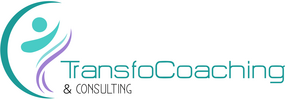What is Coaching?
Coaching is a thought-provoking partnership between a coach and the client. It enables individuals to make improvements and progress, so that they are able to perform and grow professionally and personally.
Coaching is a confidential and supportive process which helps people tackle particular issues that may be hampering their progress.
Coaching is useful even at pick performance, it assist in understanding the reasons behind that success and how to perform at even higher levels of excellence.
Why do you Need Coaching?
Coaching helps to close the gap between potential and performance. We all have dreams, we all have a vision to fulfil, yet our life experiences, negative thoughts, emotional triggers, past memories, fears and limiting beliefs often holds us back and keep us stuck. Through our engagement you will Discover your values and what matters to you the most and create a meaningful life.
You are more than your current circumstances or past. Our mission is to empower you to transform your relationship with your thoughts and to commit to take actions that will enable you to achieve what matters. We offer know-how, time, space and an opportunity to reflect, rethink, connect and learn in a supportive environment. Just like ocean waves you have what it takes to take the first Step.
Our Coaching Philosophy
Our Coaching Philosophy draws from the science of the evidence-based Acceptance and Commitment Therapy (ACT), that challenges the views that humans ought to be ‘normal’, ‘healthy’ and ‘well’ at all times. Our focus is on sharing the ACT teachings of psychological flexibility and mindfulness that allows for the rethinking of your core believes and narratives about difficult thoughts, emotions and memories. It teaches the acceptance of internal psychological struggles and unwanted emotions instead of resorting to denial and avoidance.
The ACT through its six core processes creates psychological flexibility and offers a way out of the day-to-day human emotional hardships and reduce the impact of these emotions.
Our role is to be a thinking partner, to enable you to focus on what you wish to achieve by applying inherent strengths, experience and skills, whilst learning to engage with the uncomfortable emotions and psychological experiences that are part of human existence.
Our coaching engagement allows you to skillfully embrace life’s challenges and transform the relationship with painful thoughts, emotions and memories by applying the science of the Acceptance and Commitment Therapy (ACT) practices.

Basic Coaching Structure
We offer the following flexible coaching structure:
- An Online 30 Minutes Discovery Session (Free)
- Complete Online Pre Discovery-Reflections
- Choose the Coaching Package of your Choice
- My Discovery Coaching Package
- Mind the Gap Coaching Package
- Parent FlexiAct Conversations
- Catch-22 Conversation
- The Coaching sessions, could be modified depending on your needs.
- All information shared is kept strictly confidential.
- The Discovery session establishes your readiness to commit to coaching.
- Research shows that a minimum of 6 months is ideal for sustainable change.
